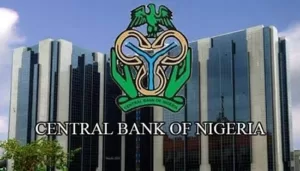It is not wrong for business owners in the private sector to obtain loans to sustain their companies.
However, accessing credit may no longer be possible for the private sector with the state of the Nigerian economy.
Hence, there is a decline in loans accessible from banks by the private sector, according to the Central Bank.

Loans from banks to the private sector and the government declined by ₦24 trillion in March this year.
This was according to the recent money and credit data published by the Central Bank of Nigeria (CBN).
Have You Read: Nigeria To Get ₦728b EU Loans, Grants
The CBN said credit to the private sector fell from ₦80.6 trillion in February to ₦71.21 trillion translating to ₦9.65 trillion decline.
Similarly, In March, loans to the government declined by ₦14.34 trillion on a month-on-month basis.
This brought the cumulative decline of loans to both sectors to ₦23.9 trillion for the period under review.
Credit to the private sector is a form of monetary resource that could be advance credit and trade credit.
Others are purchases of non-equity securities, and accounts receivable, which create a claim for repayment.
In January, credit to investors was ₦76.29 trillion while credit to the government stood at ₦36.18 trillion in January.
Meanwhile, the decline in credit to the private sector and government can be attributed to CBN’s monetary tightening policy.
In line with the monetary tightening policy, CBN will review the loan-to-deposit ratio (LDR) downward from 65% to 50%.
You May Also Like: Biden Strongly Disagrees With Court Decision On Student Loans
LDR is used to assess a bank’s liquidity by comparing its total loans to its total deposits.
An increase in the loan-to-deposit ratio allows banks to expand their credits to businesses and individuals.
However, a decline in LDR reduces their ability to loan customers from depositors’ funds.

